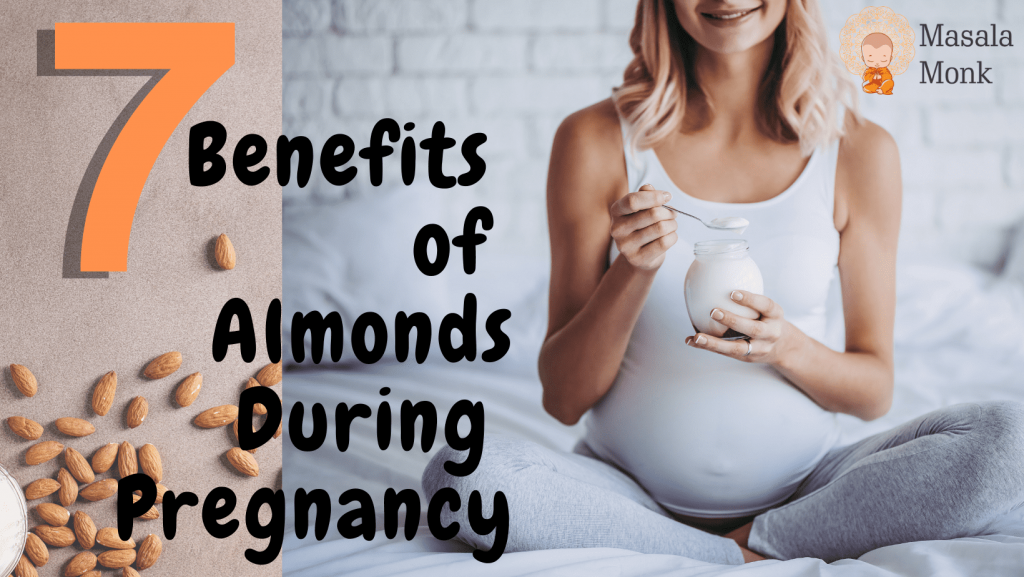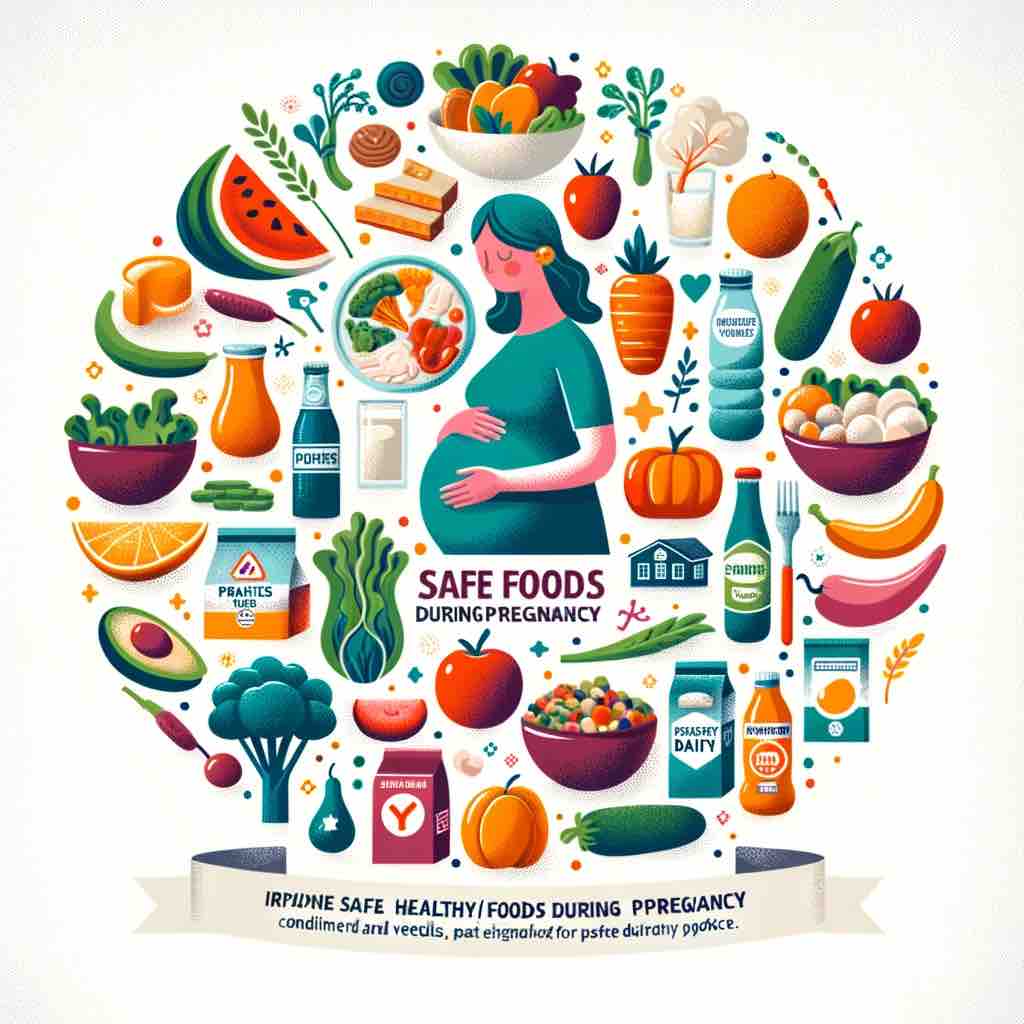
Introduction
Navigating the world of nutrition during pregnancy can often feel like walking through a maze with an ever-shifting layout. Among the myriad of choices, one particular superfood has been steadily gaining recognition for its remarkable benefits for expecting mothers: hemp seeds. While the name might initially raise eyebrows due to their botanical relationship to the cannabis plant, these tiny seeds are a powerhouse of nutrients, completely safe and incredibly beneficial during pregnancy.
Despite their tiny size, hemp seeds pack a nutritional punch that is hard to overlook. Renowned for their rich profile of essential fatty acids, proteins, and a host of vitamins and minerals, they stand out as an excellent addition to a prenatal diet. But what exactly makes these seeds a must-have for pregnant women? And how can they positively impact both the mother’s health and the crucial developmental stages of the unborn child?
As we delve into the world of hemp seeds, it’s important to dispel any misconceptions. Unlike their cannabis counterparts, hemp seeds contain negligible amounts of THC (tetrahydrocannabinol), the psychoactive component found in marijuana. Instead, what they offer is a symphony of nutrients essential for a healthy pregnancy. From supporting fetal brain and eye development to bolstering the mother’s health, the benefits of including hemp seeds in your diet during pregnancy are both diverse and significant.
In this post, we’re going to explore the top six benefits of hemp seeds during pregnancy. Each point is backed by scientific research and expert opinions, ensuring that you get the most reliable and up-to-date information. Whether you’re an expectant mother looking to optimize your prenatal nutrition, or simply curious about the potential of these little seeds, you’re in the right place. So, let’s embark on this journey together and uncover the remarkable ways in which hemp seeds can contribute to a healthy and joyful pregnancy.
Overview of Hemp Seeds
Before we delve into the specific benefits of hemp seeds for pregnant women, let’s first understand what these seeds are and why they have become a topic of interest in the world of prenatal nutrition.
Hemp seeds, sometimes referred to as hemp hearts when they are shelled, come from the hemp plant, scientifically known as Cannabis sativa. This plant is indeed a relative of the cannabis plant, but hemp seeds are entirely different in nature and function. Unlike the leaves or flowers of certain cannabis varieties, hemp seeds contain no or negligible amounts of THC, the psychoactive compound commonly associated with marijuana. What they do contain, however, is an impressive array of nutrients that are essential for overall health, particularly so during pregnancy.
Nutritionally, hemp seeds are a powerhouse. They are exceptionally rich in essential fatty acids, including omega-3 and omega-6, which are crucial for maintaining heart health and promoting proper brain and eye development in fetuses. They also boast a high protein content, with all nine essential amino acids present, making them a complete protein source. This is especially beneficial for vegetarians and vegans who may struggle to find complete plant-based proteins. Additionally, hemp seeds are a good source of dietary fiber, which aids in digestion and can help prevent the common pregnancy discomfort of constipation.
Beyond these macronutrients, hemp seeds are also laden with a variety of micronutrients. They contain significant amounts of vitamin E, a potent antioxidant, and minerals such as phosphorus, potassium, magnesium, and iron. These minerals play diverse roles, from bone health to oxygen transport in the blood, and are often needed in greater amounts during pregnancy.
The safety of consuming hemp seeds during pregnancy has been a topic of some debate, primarily due to the association of the hemp plant with cannabis. However, modern research and food safety authorities have clarified that hemp seeds are safe and beneficial for consumption. The trace amounts of THC, if present at all, are so low that they have no psychoactive effect. Moreover, the seeds are not known to contain any compounds that would pose a risk to pregnant women or their babies when consumed as part of a balanced diet.
In fact, the nutritional profile of hemp seeds aligns well with the increased nutritional demands of pregnancy. Pregnant women require more protein, healthy fats, fiber, and certain vitamins and minerals than non-pregnant individuals, and hemp seeds offer an easy and versatile way to help meet these needs. Whether sprinkled on salads, blended into smoothies, or incorporated into baked goods, they can be a convenient and nutritious addition to the diet of an expecting mother.
In the following sections, we will explore in detail the six specific benefits of incorporating hemp seeds into a pregnancy diet, each backed by scientific evidence and expert advice. Stay tuned as we uncover the impressive ways in which these small but mighty seeds can make a big impact on prenatal health.
Benefit 1: Essential Fatty Acids for Fetal Development
One of the most celebrated benefits of hemp seeds during pregnancy lies in their rich content of essential fatty acids, particularly omega-3 and omega-6. These fatty acids are not just beneficial; they are crucial for the healthy development of a fetus, especially for the brain and eyes.
Understanding Omega-3 and Omega-6 Fatty Acids
- Omega-3 Fatty Acids: Hemp seeds are a valuable source of alpha-linolenic acid (ALA), a type of omega-3 fatty acid. ALA is particularly important because it serves as a precursor to other omega-3 fatty acids, namely eicosapentaenoic acid (EPA) and docosahexaenoic acid (DHA). DHA, in particular, plays a critical role in the development of the fetal brain and retina. It contributes to the neural and cognitive development of the baby and supports the development of vision.
- Omega-6 Fatty Acids: While often less highlighted than omega-3s, omega-6 fatty acids, such as linoleic acid found in hemp seeds, are equally important. They are involved in cellular function and play a role in skin health, bone growth, and maintaining the reproductive system.
The Balance of Fatty Acids
What sets hemp seeds apart is their ideal ratio of omega-6 to omega-3 fatty acids, which is close to the 3:1 ratio recommended for optimal human health. This balance is crucial as it ensures that both types of fatty acids can perform their functions effectively without one overshadowing the other. An imbalance, especially an excess of omega-6 fatty acids, is linked to various health issues.
Impact on Maternal Health
For the mother, these fatty acids are not only beneficial for carrying a healthy pregnancy but also for her own health. They contribute to cardiovascular health, aid in reducing inflammation, and may help in managing symptoms of postpartum depression. Furthermore, adequate intake of essential fatty acids during pregnancy can also have long-term health benefits for the child, potentially reducing the risk of allergies and improving immune health.
Incorporating Hemp Seeds in the Diet
To reap these benefits, expecting mothers can easily incorporate hemp seeds into their diets. They can be sprinkled over yogurt, added to smoothies, or used in baking. The versatility of hemp seeds makes it easy to include them in various meals, ensuring a regular intake of these essential fatty acids.
In conclusion, the omega-3 and omega-6 fatty acids in hemp seeds play a vital role in both fetal and maternal health. Their contribution to the development of the baby’s brain and eyes, along with the health benefits they offer to the mother, make them an invaluable addition to a pregnancy diet. As we move on to the next benefit, it becomes increasingly clear how hemp seeds can be a nutritional cornerstone during this crucial phase of life.
Benefit 2: High-Quality Plant Protein for Growth and Development
Protein is a cornerstone nutrient in any diet, but it becomes particularly vital during pregnancy. It’s the building block of the body’s cells and is crucial for the growth and development of the fetus. Hemp seeds emerge as an exceptional source of plant-based protein, offering a plethora of benefits for both the mother and the developing baby.
The Significance of Protein During Pregnancy
- Fetal Development: Protein is fundamental for the growth of fetal tissue, including the brain and other organs. It plays a pivotal role in the development of the placenta and is integral to the expansion of maternal blood volume, a critical factor for nourishing the fetus throughout pregnancy.
- Maternal Health: For the mother, adequate protein intake is essential for supporting the myriad of physiological changes that occur during pregnancy. It helps in the development of breast and uterine tissues and is crucial in maintaining a healthy pregnancy.
Why Hemp Seeds Stand Out as a Protein Source
- Complete Protein: One of the unique aspects of hemp seed protein is that it is ‘complete’, meaning it contains all nine essential amino acids. These amino acids are termed ‘essential’ because the body cannot produce them on its own; they must be obtained through diet. This is particularly important for vegetarians and vegans, who may find it challenging to get complete protein from plant sources.
- Ease of Digestion: Hemp protein is easily digestible, making it an excellent option for pregnant women who may experience digestive sensitivities. This ease of digestion ensures that the body can efficiently utilize the protein for fetal and maternal health.
- Amino Acid Profile: Hemp seeds contain a significant amount of the amino acid arginine, which plays a role in immune function, wound healing, and heart health. This is particularly beneficial during pregnancy, a time when the body’s demand for these physiological processes is heightened.
Practical Ways to Include Hemp Seeds for Protein
- Dietary Integration: Integrating hemp seeds into the diet is remarkably simple. They can be sprinkled onto salads, blended into smoothies, or incorporated into baked goods. Their mild, nutty flavor complements a variety of dishes, making them a versatile ingredient in the kitchen.
- Portion Guidance: Just three tablespoons of hemp seeds can provide about 10 grams of protein, making a significant contribution to the daily protein requirements of a pregnant woman.
In summary, the high-quality plant protein in hemp seeds plays a critical role in supporting both fetal development and maternal health during pregnancy. Their status as a complete protein, coupled with their ease of digestion and rich amino acid profile, makes hemp seeds an invaluable dietary addition for expecting mothers. As we move forward to explore the next benefit, the multifaceted advantages of hemp seeds in a prenatal diet become even more apparent.
Benefit 3: Abundant in Magnesium and Phosphorus for Maternal and Fetal Health
Hemp seeds are not only celebrated for their essential fatty acids and protein but also for being a rich source of vital minerals, particularly magnesium and phosphorus. These minerals play a critical role in both maternal and fetal health during pregnancy, offering a range of benefits that are too significant to overlook.
The Importance of Magnesium in Pregnancy
- Prevention of Preterm Birth and Preeclampsia: Magnesium is known for its role in preventing complications such as preterm birth and preeclampsia, a condition characterized by high blood pressure and damage to other organ systems. Adequate magnesium intake supports vascular function and helps to maintain healthy blood pressure levels.
- Bone Health and Energy Production: It also contributes to bone health and is involved in energy production, making it crucial for the increased energy demands of pregnancy. Magnesium aids in hundreds of biochemical reactions in the body, including protein synthesis, muscle and nerve function, blood glucose control, and blood pressure regulation.
The Role of Phosphorus During Pregnancy
- Fetal Bone and Teeth Development: Phosphorus, while less discussed, is equally important. It plays a significant role in the formation of bones and teeth in the fetus. This mineral is essential for the growth and repair of cells and tissues and is also involved in the production of DNA and RNA.
- Energy Storage and Utilization: Phosphorus is a component of ATP (adenosine triphosphate), the molecule that stores and releases energy in bodily processes. Its presence is vital for maintaining energy levels and supporting the metabolic needs of both the mother and the developing fetus.
Nutritional Content and Recommendations
- Nutritional Density of Hemp Seeds: Just a small serving of hemp seeds can contribute significantly to the daily requirements of these minerals. For instance, three tablespoons of hemp seeds provide approximately 50% of the Recommended Daily Allowance (RDA) for magnesium and about 60% for phosphorus for pregnant women.
- Incorporation into Diet: The ease with which hemp seeds can be incorporated into the diet makes them an ideal choice for boosting the intake of these essential minerals. They can be added to a variety of dishes, from breakfast cereals to smoothies, salads, and even desserts.
Addressing Common Deficiencies
Many pregnant women may unknowingly suffer from magnesium deficiency due to increased requirements and dietary limitations. By incorporating hemp seeds into their daily diet, they can help address this gap and ensure adequate intake of these critical nutrients.
In conclusion, the abundant presence of magnesium and phosphorus in hemp seeds underscores their value in a pregnancy diet. These minerals contribute to vital functions and developmental processes, emphasizing the importance of a well-rounded diet for expecting mothers. As we progress to the next benefit, it becomes increasingly evident how each nutrient in hemp seeds plays a synergistic role in supporting a healthy pregnancy.
Benefit 4: Preventing Iron Deficiency and Supporting Healthy Blood Flow
Iron is a critical nutrient in pregnancy, essential for producing hemoglobin, the protein in red blood cells that carries oxygen to other cells in your body. During pregnancy, the need for iron increases significantly as the mother’s blood volume expands and the fetus and placenta grow. Hemp seeds are a valuable dietary addition for their iron content, helping to prevent iron deficiency anemia, a common concern during pregnancy.
Understanding Iron’s Role in Pregnancy
- Supporting Fetal and Placental Development: Iron is crucial for the development of the placenta and fetus. It supports the baby’s brain development and is essential for the production of myoglobin, a protein that supplies oxygen to muscles.
- Reducing Risks of Preterm Delivery and Low Birth Weight: Adequate iron intake is associated with a reduced risk of preterm delivery and low birth weight. These are key factors in ensuring the health and well-being of the newborn.
- Enhancing Maternal Health: For the mother, sufficient iron levels help in maintaining energy, preventing fatigue, and boosting immunity. During pregnancy, the body’s blood volume increases by about 50%, escalating the demand for iron to produce more hemoglobin.
Hemp Seeds as a Source of Iron
- Iron Content in Hemp Seeds: Hemp seeds provide a plant-based source of iron. Consuming a serving of hemp seeds can help meet a significant portion of the daily iron requirements for pregnant women. For example, three tablespoons of hemp seeds contain about 2.5 mg of iron, which is about 14% of the daily recommended intake for pregnant women.
- Synergistic Nutrient Absorption: The vitamin C content in many fruits and vegetables can enhance the absorption of plant-based iron when consumed together. Adding hemp seeds to a salad with vitamin C-rich ingredients like bell peppers or citrus fruits can be an effective way to maximize iron uptake.
Addressing Iron Deficiency Anemia in Pregnancy
- Prevalence and Implications: Iron deficiency anemia is one of the most common nutritional deficiencies in pregnant women, leading to complications such as fatigue, increased susceptibility to infections, and in severe cases, implications for the baby’s growth.
- Dietary Strategies: Incorporating hemp seeds into the diet can be an effective strategy in preventing this condition. They can be easily added to a variety of dishes, from breakfast cereals and smoothies to salads and baked goods, providing a convenient way to boost iron intake.
In conclusion, hemp seeds offer a significant benefit in preventing iron deficiency anemia in pregnant women through their iron content. This role is vital in supporting the health and development of both the mother and the fetus. With their versatility in culinary use, hemp seeds provide an accessible means of enhancing the nutritional quality of a pregnancy diet. As we continue to explore the remaining benefits, the comprehensive nutritional profile of hemp seeds becomes increasingly apparent, showcasing their importance in supporting a healthy pregnancy journey.
Benefit 5: Provides Vital Micronutrients for Comprehensive Prenatal Care
In addition to their macronutrient content, hemp seeds are a treasure trove of essential micronutrients that play pivotal roles in prenatal health. This section delves into the spectrum of vitamins and minerals found in hemp seeds, highlighting how they contribute to the well-being of both the expectant mother and the developing fetus.
The Spectrum of Micronutrients in Hemp Seeds
- Vitamins for Development and Immunity: Hemp seeds are a good source of various vitamins, including vitamin E and B vitamins like B6. Vitamin E acts as a powerful antioxidant, protecting cells from oxidative stress. B vitamins, particularly B6, are crucial for fetal brain development and aiding in the mother’s metabolism, ensuring efficient energy utilization.
- Minerals for Structural Integrity and Functionality: They also contain minerals such as manganese, potassium, calcium, and zinc. Manganese plays a role in healthy bone formation and cartilage development, important as the fetus grows. Potassium helps in maintaining fluid balance and proper nerve and muscle function. Calcium is vital for building the baby’s bones and teeth. Zinc is essential for cell growth, immune function, and the synthesis of DNA.
Impact on Pregnancy Health
- Supporting Fetal Growth: These micronutrients contribute significantly to the overall growth and development of the fetus. They ensure that the baby’s structural, cognitive, and physiological aspects develop optimally.
- Enhancing Maternal Health: For the mother, these micronutrients aid in maintaining her health during pregnancy. They support immune function, help in the prevention of certain pregnancy-related complications, and contribute to overall vitality and wellness.
Dietary Considerations and Integration
- Balancing Nutrient Intake: While hemp seeds contain these essential micronutrients, it’s important to consume them as part of a balanced diet. They should complement other nutrient sources to ensure a comprehensive intake of all necessary vitamins and minerals.
- Culinary Versatility of Hemp Seeds: The versatility of hemp seeds makes them an easy addition to many dishes. They can be sprinkled on fruits, added to smoothies, or incorporated into salads and baked items, allowing for a diverse and nutrient-rich diet.
Addressing Nutritional Gaps in Pregnancy
- Filling Common Nutritional Gaps: Many pregnant women face challenges in meeting their increased nutritional needs. Hemp seeds offer a convenient and efficient way to fill potential gaps, especially for micronutrients that are crucial for healthy pregnancy outcomes.
- Consultation with Healthcare Providers: As with any dietary change during pregnancy, it’s advisable for expectant mothers to consult with their healthcare providers. This ensures that their diet is tailored to their specific nutritional needs and any medical considerations.
In conclusion, the provision of vital micronutrients by hemp seeds underlines their significant role in prenatal nutrition. These micronutrients contribute to the comprehensive care necessary for a healthy pregnancy, supporting both the mother and the fetus in various critical ways. As we proceed to explore the final benefit of hemp seeds in pregnancy, their contribution to a balanced and nutritious prenatal diet becomes even more evident.
Benefit 6: High Fiber Content for Digestive Health and Weight Management
The final, yet equally important benefit of hemp seeds in pregnancy revolves around their high dietary fiber content. Fiber is an essential component of a healthy diet, particularly during pregnancy, where it plays a crucial role in maintaining digestive health and aiding in weight management.
The Role of Fiber in Pregnancy
- Digestive Health and Constipation Relief: One of the common discomforts during pregnancy is constipation, which can be attributed to hormonal changes and the physical pressure of a growing uterus. Dietary fiber, particularly the insoluble type found in hemp seeds, helps in promoting regular bowel movements and preventing constipation by adding bulk to the stool.
- Blood Sugar Regulation: Fiber also plays a vital role in regulating blood sugar levels. It slows down the digestion of carbohydrates, preventing spikes in blood sugar, which is particularly beneficial in managing gestational diabetes, a condition characterized by high blood sugar during pregnancy.
- Satiety and Weight Management: Additionally, fiber contributes to a feeling of fullness, helping to manage appetite and prevent excessive weight gain during pregnancy. This is important for maintaining a healthy weight, which is linked to better outcomes for both the mother and the baby.
Nutritional Profile of Hemp Seeds
- Fiber Content in Hemp Seeds: Hemp seeds, especially when consumed with their shells, are an excellent source of fiber. Just three tablespoons can provide a significant portion of the daily recommended intake of dietary fiber for pregnant women.
- Complementing Other Dietary Sources: While hemp seeds are a great source of fiber, they should be part of a fiber-rich diet that includes fruits, vegetables, whole grains, and legumes. This ensures a diverse intake of both soluble and insoluble fibers, catering to all the digestive and metabolic benefits fiber offers.
Incorporating Hemp Seeds into the Diet
- Easy Addition to Meals: Hemp seeds can be easily incorporated into various meals throughout the day. Sprinkling them on breakfast cereals, blending them into smoothies, or adding them to salads and baked goods are simple ways to increase dietary fiber intake.
- Gradual Introduction and Hydration: For those not used to high fiber diets, it’s advisable to introduce hemp seeds gradually to allow the digestive system to adjust. Additionally, increasing water intake alongside fiber consumption is important to avoid digestive discomfort.
Considerations and Recommendations
- Balancing Fiber Intake: While a high-fiber diet is beneficial during pregnancy, excessive fiber intake can lead to bloating, gas, or discomfort. Finding the right balance that suits one’s individual digestive system is key.
- Consultation with Healthcare Providers: As always, consulting with healthcare providers before making significant dietary changes during pregnancy is recommended. This is particularly important for women with pre-existing digestive issues or those on specific dietary plans.
In conclusion, the high fiber content of hemp seeds offers significant benefits for digestive health and weight management during pregnancy. This, combined with their rich nutrient profile, makes them a valuable addition to a prenatal diet. Through their multiple health benefits, hemp seeds stand out as a superfood, playing a supportive role in ensuring a healthy and comfortable pregnancy experience.
Having explored the multifaceted benefits of hemp seeds for expectant mothers, it’s now essential to address some key considerations and best practices for incorporating these nutrient-rich seeds into a pregnancy diet.
Considerations When Adding Hemp Seeds to Your Pregnancy Diet
- Start Slowly: If you’re not used to hemp seeds in your diet, it’s wise to start with small amounts. This gradual introduction helps your body adjust to the increased fiber and nutrient intake, minimizing any digestive discomfort.
- Quality Matters: Opt for organic and unprocessed hemp seeds to ensure you’re getting the highest quality without any added chemicals or preservatives. This is particularly important during pregnancy, where the focus is on clean and wholesome nutrition.
- Allergy Awareness: While rare, some individuals may have allergies to hemp seeds. If you experience any unusual symptoms after consuming hemp seeds, such as rashes, digestive discomfort, or breathing difficulties, consult your healthcare provider immediately.
- Balanced Diet Integration: Hemp seeds should be a part of a balanced and varied diet. Relying solely on hemp seeds for certain nutrients isn’t advisable. They should complement other food sources rich in proteins, vitamins, minerals, and other nutrients necessary during pregnancy.
Best Practices for Incorporating Hemp Seeds
- Diverse Usage: Hemp seeds can be used in a variety of ways. Sprinkle them on your morning yogurt or oatmeal, add them to your smoothies, or include them in your baking recipes for an extra nutritional boost.
- Combining with Other Nutrients: Pair hemp seeds with foods high in vitamin C to enhance iron absorption. Similarly, combining them with calcium-rich foods can support bone health for both mother and baby.
- Storing Hemp Seeds: Store hemp seeds in a cool, dry place or in the refrigerator to maintain their freshness. Proper storage is key to preserving their nutritional value and preventing rancidity.
Creative Culinary Ideas
- Hemp Seed Pesto: Blend hemp seeds with fresh basil, garlic, Parmesan cheese, and olive oil for a nutritious twist on traditional pesto.
- Hemp-Infused Smoothies: Add a scoop of hemp seeds to your fruit or green smoothies for an extra protein and fiber kick.
- Hemp Seed Energy Bites: Mix hemp seeds with oats, peanut butter, honey, and dark chocolate chips for a quick and healthy snack.
- Salad Topping: Sprinkle hemp seeds over salads for added texture and nutrients.
- Hemp Seed Oatmeal: Stir hemp seeds into your morning oatmeal along with fruits and nuts for a wholesome breakfast.
Consulting with Healthcare Professionals
It is crucial to discuss any dietary changes with your healthcare provider, especially during pregnancy. They can provide personalized advice based on your health history and nutritional needs.
Final Thoughts
Incorporating hemp seeds into your pregnancy diet can offer numerous health benefits, from essential nutrient intake to improved digestive health. By following these considerations and best practices, you can safely and effectively make the most of what hemp seeds have to offer, contributing positively to your prenatal nutrition and overall well-being during this vital stage of life.
Engaging Conclusion and Forward-Looking Considerations
As we wrap up our exploration of the numerous benefits of hemp seeds during pregnancy, it’s clear that these small seeds pack a significant nutritional punch. From essential fatty acids crucial for fetal development to the high-quality plant protein needed for both maternal and fetal health, hemp seeds emerge as a superfood in the truest sense. Their rich content of vital micronutrients, coupled with the benefits of their high fiber content, underscores their potential as a key component of prenatal nutrition.
Reflecting on the Journey
We’ve navigated through the diverse nutritional landscape of hemp seeds, uncovering their multifaceted benefits. Each point illuminated a different aspect of why incorporating hemp seeds into a pregnancy diet can be so advantageous. From aiding in fetal development to supporting maternal health, the seeds’ benefits are as varied as they are significant.
Looking Beyond Pregnancy
The benefits of hemp seeds extend beyond pregnancy. Postpartum mothers can also benefit from their nutrient-dense profile, which can aid in recovery and provide the necessary energy and nutrients during breastfeeding. Their role in supporting overall health makes them a valuable dietary addition for anyone looking to enhance their nutritional intake.
Encouraging Personal Research and Consultation
While this exploration provides a comprehensive overview of the benefits of hemp seeds during pregnancy, it’s important to remember that personal dietary needs can vary. Expectant mothers are encouraged to conduct further research and, most importantly, consult with their healthcare providers to tailor their diets to their specific needs and conditions.
A Call to Share Experiences and Recipes
The versatility of hemp seeds in culinary applications makes them a joy to experiment with in the kitchen. Readers are invited to share their own experiences of incorporating hemp seeds into their diets and exchange recipes that have worked for them. This sharing of knowledge and experience can be a wonderful way to support each other in the journey towards a healthier lifestyle.
Final Words of Encouragement
Incorporating hemp seeds into your pregnancy diet is about more than just adding a new ingredient to your meals; it’s about making a conscious choice towards better health and well-being for both you and your baby. With their impressive nutritional profile, hemp seeds offer a simple yet effective way to enhance your prenatal diet, laying the foundation for a healthy pregnancy and beyond.
As we conclude, let this exploration be a starting point for your journey with hemp seeds. May it inspire you to embrace a diet rich in diverse, wholesome, and nutritious foods, supporting you through one of life’s most beautiful and transformative experiences – pregnancy.
FAQs on Hemp Seeds During Pregnancy
- Q: Are hemp seeds safe to consume during pregnancy?
- A: Yes, hemp seeds are safe and beneficial during pregnancy. They are a rich source of nutrients essential for fetal development and maternal health, and contain negligible amounts of THC.
- Q: How much hemp seeds should I eat per day during pregnancy?
- A: A recommended serving is about 2-3 tablespoons per day. This amount provides a good balance of nutrients without overconsumption.
- Q: Can hemp seeds help with pregnancy-related constipation?
- A: Absolutely. The high fiber content in hemp seeds aids in digestion and can help alleviate constipation, a common issue during pregnancy.
- Q: Do hemp seeds provide enough protein for pregnant women?
- A: Hemp seeds are an excellent source of plant-based protein. While they provide a significant amount of protein, they should be part of a balanced diet to meet the complete protein needs during pregnancy.
- Q: Are there any risks associated with consuming hemp seeds during pregnancy?
- A: Hemp seeds are generally safe. However, it’s important to start with small amounts to ensure you don’t have any allergic reactions and consult with your healthcare provider, especially if you have pre-existing health conditions.
- Q: Can hemp seeds improve my baby’s brain development?
- A: Yes, the omega-3 fatty acids, particularly DHA in hemp seeds, are crucial for the healthy brain and eye development of the fetus.
- Q: Will eating hemp seeds affect my baby’s or my own weight?
- A: Hemp seeds can help manage weight during pregnancy due to their high fiber content that promotes a feeling of fullness and their balanced nutrient profile.
- Q: Can I use hemp seeds in cooking and baking?
- A: Yes, hemp seeds are versatile and can be used in various recipes, including salads, smoothies, yogurt toppings, and baked goods.
- Q: Is it possible to develop an allergy to hemp seeds during pregnancy?
- A: Hemp seed allergies are rare but possible. If you experience any allergic symptoms, stop consumption and consult your healthcare provider.
- Q: Can hemp seeds help in reducing the risk of pregnancy complications?
- A: Hemp seeds contain nutrients like magnesium and omega-3 fatty acids that can support overall health and may help reduce the risk of certain pregnancy complications like preeclampsia and preterm birth. However, they should not be seen as a standalone solution but as part of a healthy, balanced diet.
Blog Tags for the Post
pregnancy nutrition, hemp seeds benefits, prenatal health, plant-based protein, omega-3 fatty acids, digestive health, fetal development, iron source, healthy pregnancy diet, natural superfoods















